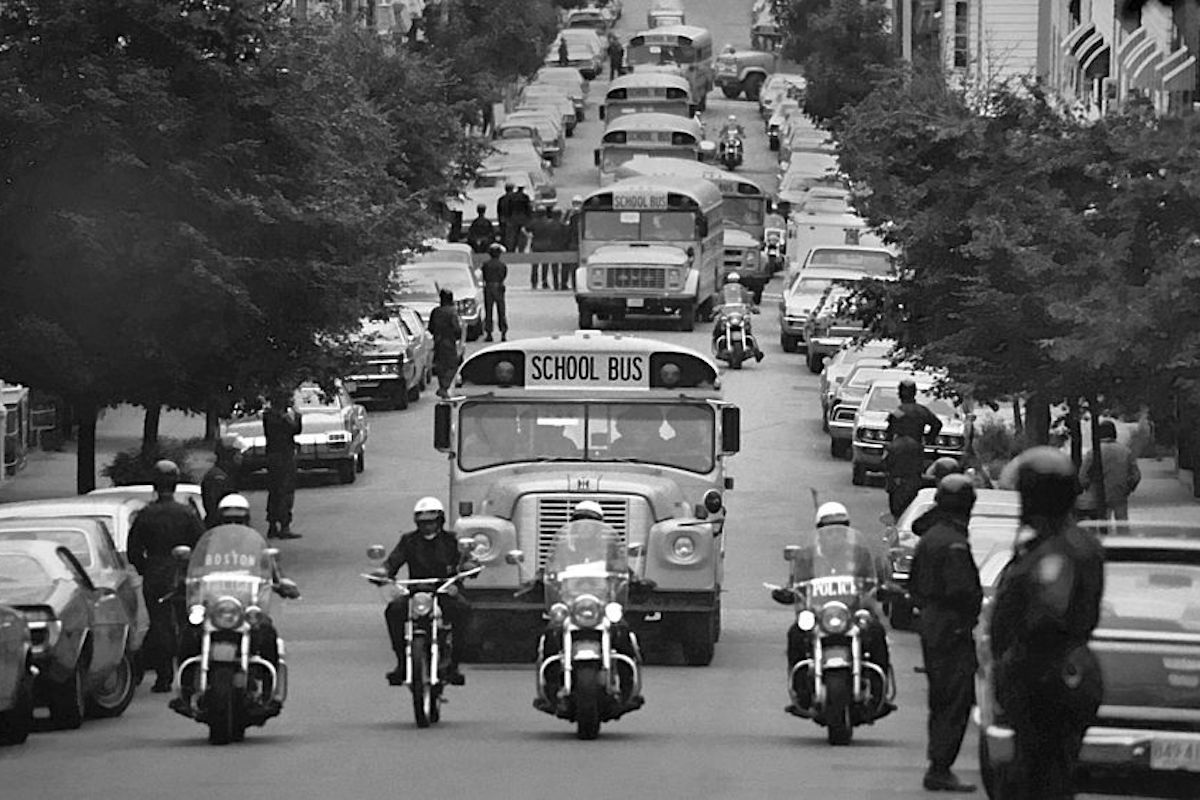Accompanied by motorcycle-mounted police, school buses carrying African American students arrive at formerly all-white South Boston High School on September 12, 1974. In 1971, the U.S. Supreme Court ruled in favor of busing as a mechanism to end racial segregation because black children were still attending segregated schools. White children had been riding school buses for decades, but the idea of using the same mechanism to desegregate public schools triggered violent protests, writes Gloria J. Browne-Marshall. Spencer Grant—Getty Images. Featured Image
[dropcap]B[/dropcap]using, the transporting of public school children to end racial segregation, was thrust back into national conversations when Senator Kamala Harris criticized Vice President Joe Biden, over his record on it at the first Democratic presidential debate. [mc4wp_form id=”6042″]
But while her words sparked a renewed conversation about the subject, busing itself has been dead for 20 years this month. Busing is a complex issue. I know this from both my personal and professional experience. I also know that the re-segregation of public schools means separate but unequal opportunities for African-American children.
Like Kamala Harris, I was bused. Like Harris, I went to law school. In 1999, as a young civil rights attorney for the NAACP Legal Defense Fund, my caseload included the landmark busing case Swann v Charlotte-Mecklenburg Board of Education in North Carolina, in which white parents challenged busing and won.



You must be logged in to post a comment.